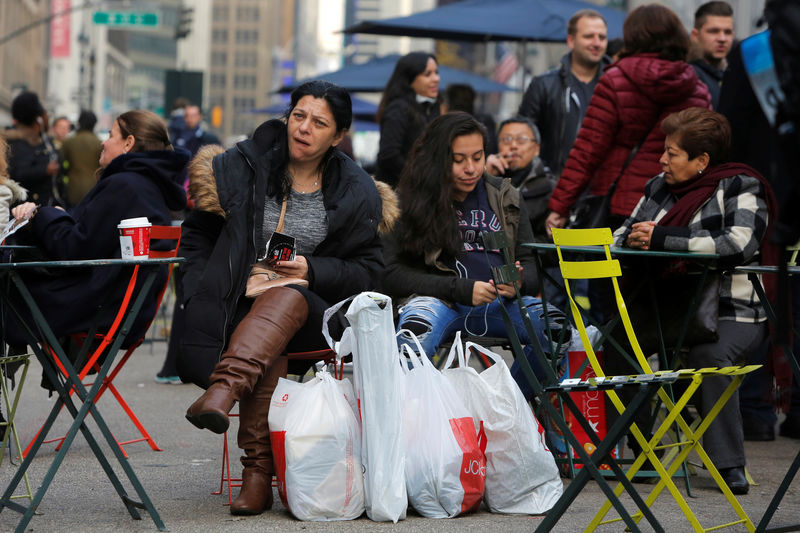WASHINGTON (Reuters) - U.S. economic growth for the fourth quarter is likely to be revised lower after data on Thursday showed less consumer spending on services and business investment in intellectual property products than previously estimated.
The findings of the Commerce Department's quarterly services survey, or QSS, follow recent data showing a bigger trade deficit in December and weaker construction outlays than had been assumed in the government's initial fourth-quarter GDP report published last month. December retail sales were also softer than previously reported.
Before the QSS data, economists had expected that GDP growth for the October-December quarter would be cut to between a 2.0 percent and 2.3 percent annualized rate from the 2.6 percent pace reported last month.
Based on the QSS data, economists at JPMorgan (NYSE:JPM) estimated that fourth-quarter GDP could be cut to a 1.8 percent rate when the government publishes its revision next Thursday. According to JPMorgan economist Daniel Silver the revisions to fourth-quarter GDP would be centered around consumer spending and investment in intellectual property products.
"Within consumption, it appears that spending at nonprofit hospitals, which alone accounts for about five percent of consumption, is set to be revised down noticeably," said Silver.
Should economists' predictions prove correct, this would suggest a considerable loss of momentum in the economy that appears to have persisted early in the first quarter. Growth estimates for the first quarter are as low as a 0.4 percent rate.
The economy is losing speed as stimulus from a $1.5 trillion tax cut and increased government spending fades. Slowing global economies, a strong dollar and a trade war between the United States and China are weighing on exports.
"The U.S. economy enjoyed a banner year in 2018, juiced up by massive deficit-financed tax cuts for individuals and businesses and increases in government spending," said Abhilasha Singh, an economist at Moody's Analytics in West Chester, Pennsylvania.
"By late 2019, the fading effects of the fiscal stimulus, higher interest rates, slower immigration, and more limited trade will weigh on the economy and spending gains."
